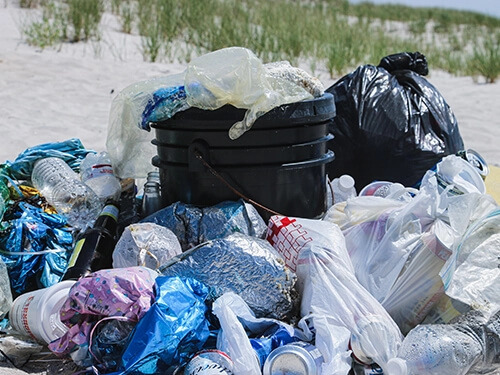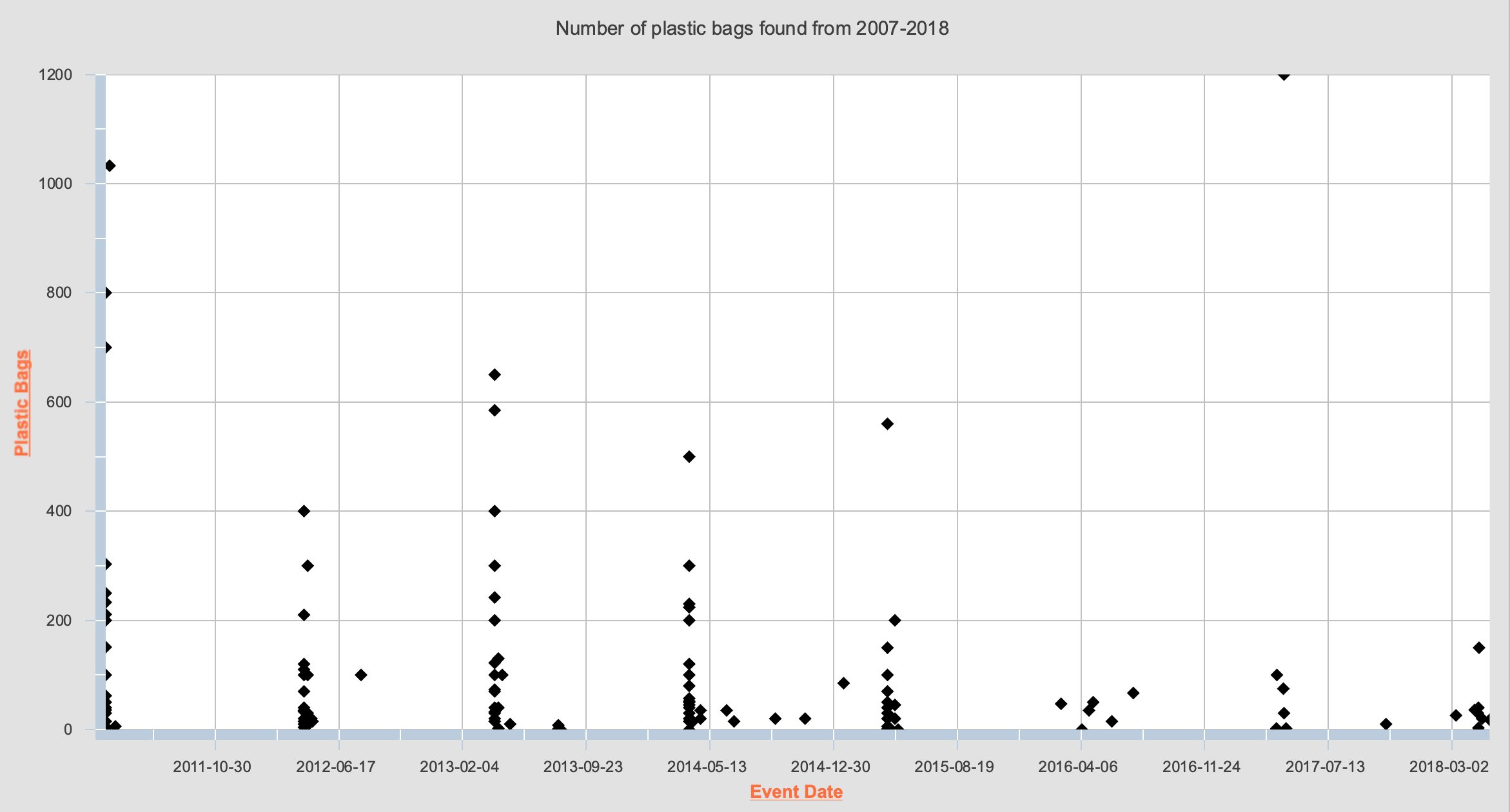Trash Free Potomac – Plastic Bags

About this Inquiry
In this Inquiry, students investigate whether a plastic bag tax was effective. Students are introduced to Trash Free Potomac, a citizen science project in which volunteers report the amount and type of trash collected at annual trash cleanups in the Washington, DC, area. Students examine a scatter plot in FieldScope showing the date of each trash cleanup and the number of plastic bags found before and after tax implementation in 2010. They make a claim that the number of plastic bags found decreases after the bag tax and discuss alternative explanations for the trend. They then investigate data about the number of volunteers and number of sites documenting plastic bags found. Finally, they design a follow-up investigation to determine with greater certainty if the plastic bag tax was effective.
Instructional Days
3 days
Learning Goals
- Use graphs of large data sets to identify changes in the number of plastic bags found in the environment over time.
- Apply concepts of mean and variability to analyze and characterize data about plastic bag in the environment before and after the plastic bag tax, using the digital tool FieldScope.
- Construct and present an oral argument supported by evidence and scientific reasoning to support an explanation for why the number of plastic bags in the environment decreased over time.
- Analyze and interpret graphs to support or refute alternative explanations for what is causing the number of plastic bags to decrease over time.
- Consider limitations of secondhand data analysis and propose study designs to generate evidence that can help answer questions with greater confidence.

Type of Analysis
- Graphing – Scatterplot
- Graphing – Bar Graph
About this Citizen Science Project:
For more than 60 years, the Alice Ferguson Foundation (AFF) has shared the wonder and excitement of hands-on learning about nature with students and residents of the National Capital Region. Located on 330 acres of working farmland, emergent wetlands, and the longest, freshwater Living Shoreline in the nation, the staff and educators of the AFF have provided transformative environmental education experiences for nearly half a million students since 1954. AFF was founded with a mission to connect people to the natural world, sustainable agricultural practices, and the cultural heritage of their local watershed through education, stewardship, and advocacy.
Since 1989, AFF has also sought to create a lasting reduction of litter and waste in the Potomac River Watershed through public education, advocacy, market incentives, and strong policy and regulatory efforts. This effort grew out of the visible impact of plastics pollution and marine debris along the shoreline, one of the most impactful learning spaces. The annual Potomac River Cleanup, the largest regional event of its kind, has activated 145,000 volunteers to remove more than 7 million pounds of trash–the equivalent weight of 250 school buses–over the last 30 years. TheTrash Free Potomac Watershed Initiative now includes the Trash Free Communities program, through which AFF staffers work closely with communities around the DC metro area to create, protect, and maintain healthy and safe neighborhood environments by addressing litter reduction.
For more information, visit the Alice Ferguson Foundation website.